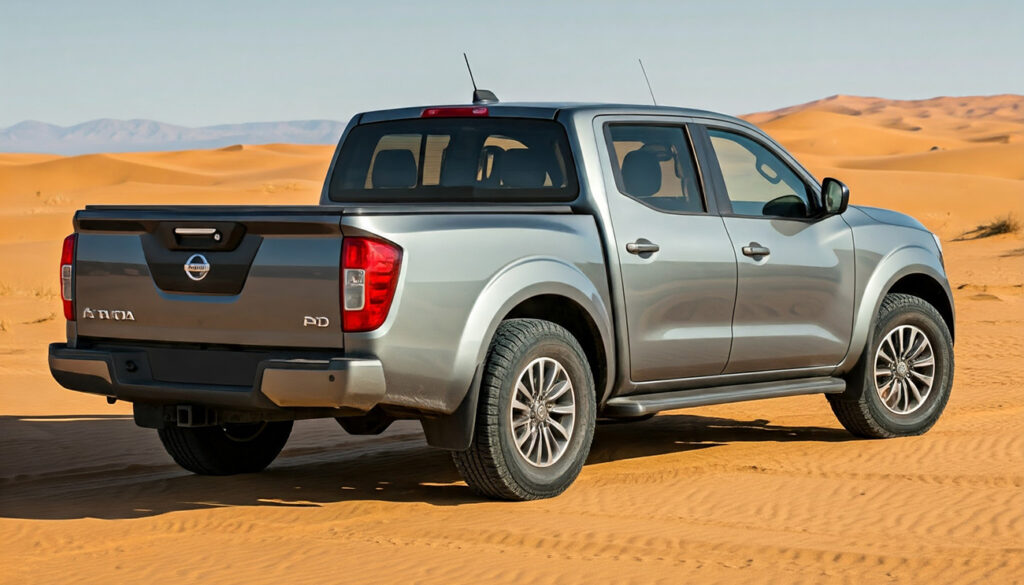You’re probably wondering if a tonneau cover could actually help your truck’s gas mileage. There’s a lot of talk about how reducing drag might make trucks run a bit better on gas, but does a tonneau cover really make much difference? Let’s look at how this works, what types of covers are out there, and if any of them save you fuel.
How Do Tonneau Covers Work to Reduce Drag?
When you drive, your truck bed creates drag – basically, air resistance that slows things down. This is especially true on highways or when going fast. By covering the bed, a tonneau cover helps smooth out the airflow, reducing that drag. Some truck owners notice a bit of fuel savings, though it’s not always a huge amount. There’s a lot of mixed opinions.
But remember, the effectiveness depends on a few things: what type of tonneau cover you use, your truck’s size, and the kind of driving you do most often.
Types of Tonneau Covers and Their Impact on Gas Mileage
Not every tonneau cover does the job the same. Different covers can have different effects on gas mileage, mainly depending on how much they reduce that airflow drag.
Soft Roll-Up Tonneau Covers
Soft roll-up covers are usually made from vinyl or fabric. They sit close to the truck bed, which might help a bit with airflow. However, because they’re not entirely smooth, some air can still get caught under them, especially at high speeds.
These covers may save you a tiny bit on gas, but they’re not the most effective choice if you’re looking for max fuel efficiency. They’re light though, which means they don’t add extra weight to your truck.
Hard Folding Tonneau Covers
Hard folding covers, made from aluminum, fiberglass, or other solid materials, make a more flat and firm surface over the truck bed. Since they’re more aerodynamic, they can reduce drag better than soft covers. Many drivers believe these covers improve fuel efficiency more than soft covers, especially if you’re driving long distances on highways.
On the downside, they add some weight to your truck, which could cancel out a little bit of the fuel savings. But overall, they’re one of the better choices for gas mileage improvement.
Retractable Tonneau Covers
Retractable covers slide back and forth on rails. They’re often made from aluminum slats or a similar material, making them heavy but smooth. When closed, they offer a good surface to reduce drag. But their weight could impact fuel efficiency since they add a bit of load to the truck.
If you keep it closed most of the time, you might notice a slight bump in fuel efficiency. However, retracting it open will mean your truck bed is exposed, reducing any gas savings.
One-Piece Hinged Tonneau Covers
One-piece covers give you a solid surface that sits flush over the truck bed. They’re known for being one of the best at reducing drag since there’s no way for air to get trapped. This design can save a bit on gas, especially at higher speeds, by smoothing out airflow effectively.
But they’re heavy, which might offset a bit of the fuel savings. Some folks don’t like that they’re a little hard to remove if you need full bed access often. So, if you need both security and slight fuel savings, this could work, but weigh the pros and cons first.
How Much Fuel Can You Really Save?
The amount of gas you save with a tonneau cover isn’t huge. For some, it might mean an increase of around 1-2 miles per gallon on highways, while others might not notice much difference. It all depends on the cover’s design, weight, and how fast you drive.
Some studies have shown gas mileage improvements up to 10% on highways, but this varies widely. City driving, on the other hand, doesn’t make a big impact on fuel usage since speeds are lower, meaning less drag.
Other Factors that Influence Gas Mileage with a Tonneau Cover
Besides the cover type, other elements can also impact how much gas you actually save.
Speed
Highway driving benefits the most from a tonneau cover because the faster you go, the more drag you create. At higher speeds, a cover can reduce that drag effectively. But if you’re mostly driving in the city, the difference will be minimal.
Weight of the Cover
The weight of the cover is crucial too. Heavy covers, like those made of fiberglass or metal, might offer good aerodynamics but add extra weight, which can eat into gas savings. Lightweight covers won’t give as much drag reduction but won’t add much weight either.
Truck Size
Larger trucks may see a bigger benefit from a tonneau cover since they have more surface area where drag can happen. For smaller trucks, the difference in gas mileage might be less noticeable.
Weather Conditions
Weather plays a role too. Strong winds or rain can affect how much a tonneau cover improves fuel efficiency. In windy areas, a cover might help reduce the impact of wind on your bed, keeping gas mileage more consistent.
So, Is It Worth Getting a Tonneau Cover for Gas Mileage?
If saving on gas is your main reason for getting a tonneau cover, you’ll see some small benefits, especially with hard, aerodynamic covers. But don’t expect miracles – a tonneau cover can only do so much for fuel efficiency. For many, the main advantage is the added security and weather protection for your cargo, with gas savings being a little extra.
In summary, a tonneau cover might help a bit on long highway trips but may not make a huge difference in city driving.

